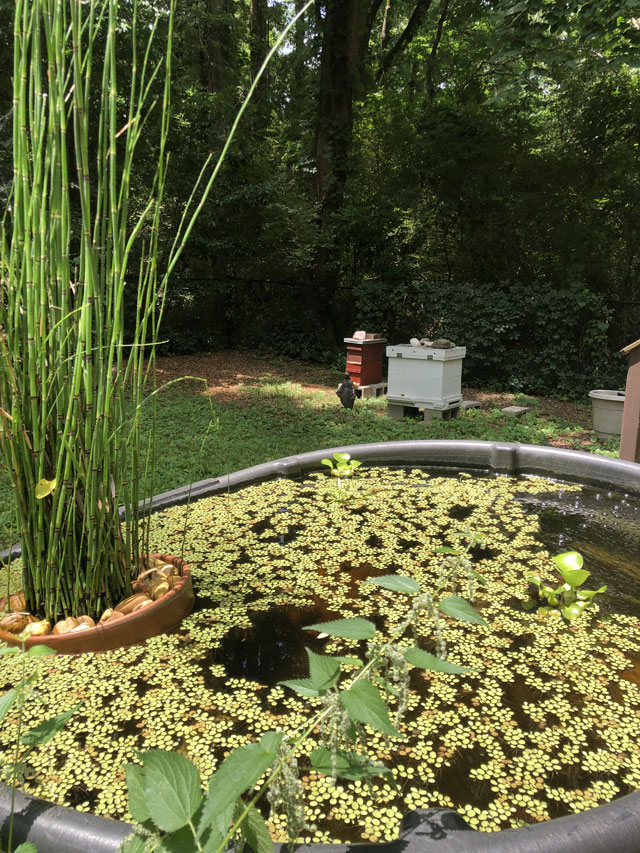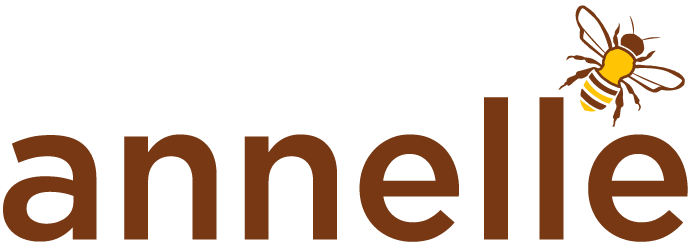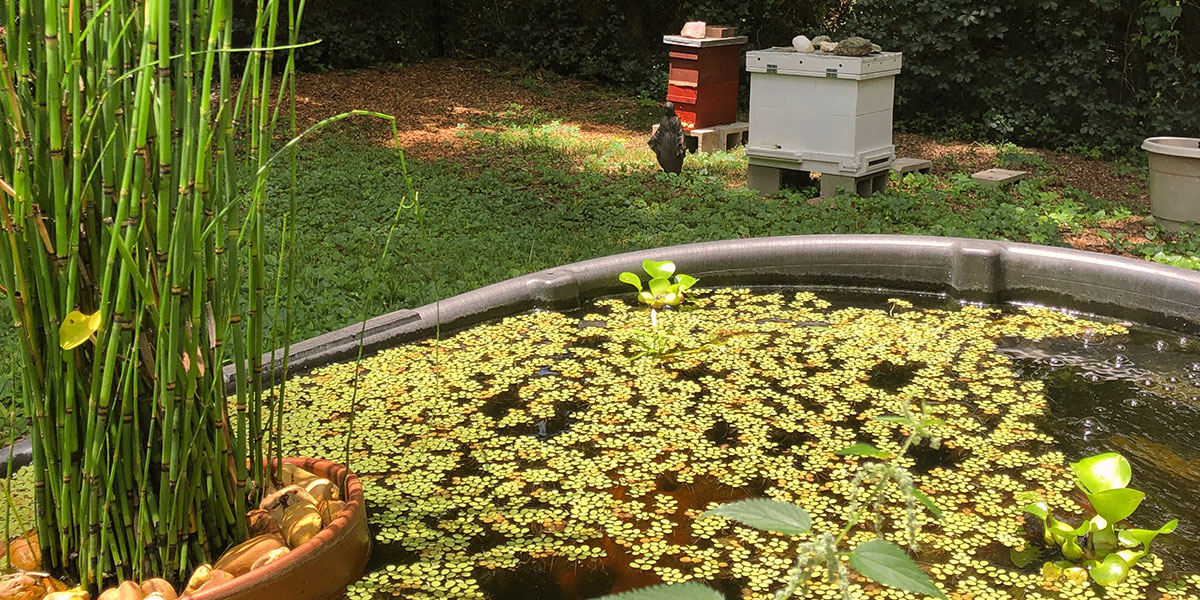
Last month, we talked about some of the techniques honey bees use to keep their colonies cool in the summer. This month, we are talking about how you can help your honey bees stay cool, as well as ways to support your local native bees. Of course the first thing I am going to mention is water. It is so important for us to provide a clean and safe source of water for our bees and other pollinators. Bird baths or ponds are a really great way to provide water for all the local nature beings. Be sure to change out the bird bath water frequently, and do not let it dry up. The bees will find another spot, if their water source is not consistent.
I have found that it has been so dry here in the Southeast this month, that even when I water my plants the birds are all over the ground trying to drink water. We don’t often think about how our homes, roads and businesses displace access to water for all the natural beings. Many natural water sources are moved underground or displaced by concrete. This makes it even more important to provide water sources for all our wild neighbors. In my backyard, I have an old livestock water tank that I have filled with water, aquatic plants and fish. This allows the bees, other insects and birds a place to land safely and not drown. We have even seen a barred owl on our little pond several times!
For your own beehives, you can start by making sure you purchase or build well insulated hives. My layens hives have much thicker walls, and I notice the bees do so much better in these hives. I rarely see them bearding outside the layens hives like I do the langstroth hives, which have much thinner walls. Another way to support the bees proactively is by locating the bee hives in part shade. Morning sun in the east is the best for the bees, as they are early risers and the winter sun can help them get an early start to the day and melt the snow. Hot summer sun from the west can be particularly rough in the evenings, and can be a good direction to shade out. I hope you find many ways to keep your local pollinators and yourself cool this summer!

